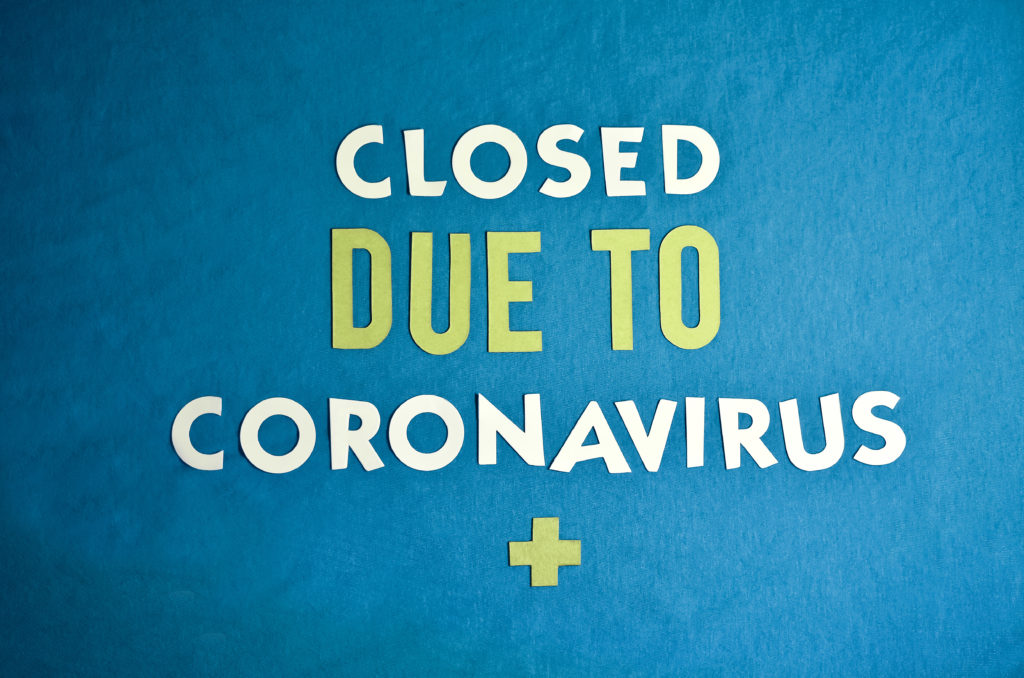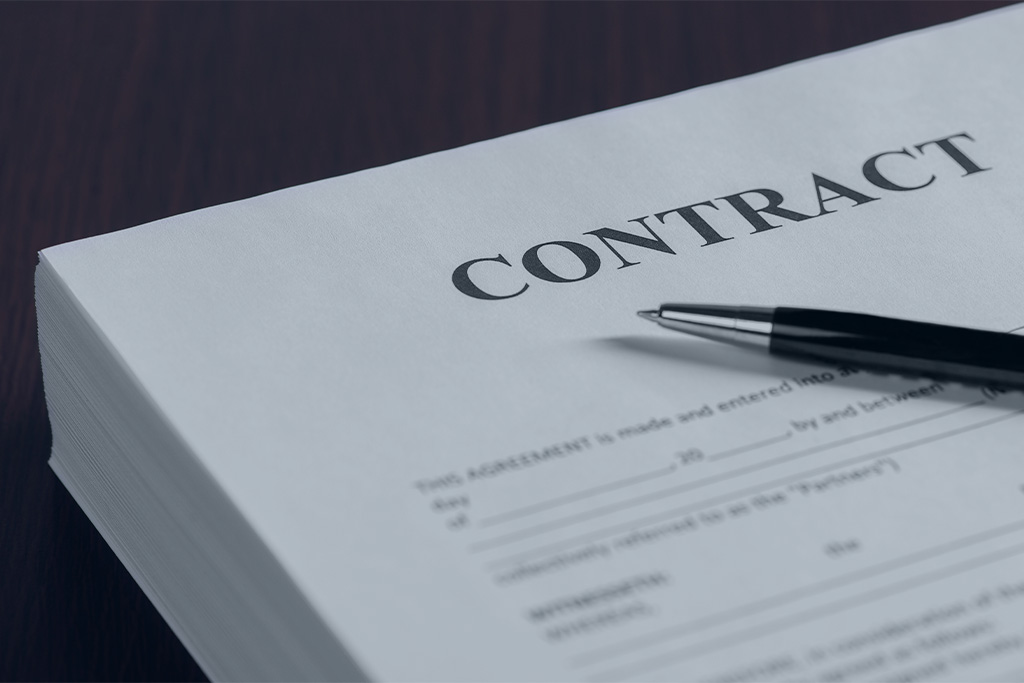
I probably don’t have to tell you this since you are living it, but the COVID-19 (“Coronavirus”) pandemic is screwing things up for a lot of people and businesses. Because of the pandemic many businesses have been unable to fulfill their contractual obligations. For example, in Massachusetts, as with many states – and even countries – Governor Charlie Baker ordered all non-essential businesses to temporarily cease in-person operations. As a result, many business are now using the Coronavirus as an excuse for nonperformance. You may have heard, “Sorry, due to the Coronavirus we can’t [deliver your order, send you payment, ship the goods, …on and on …]. This “Due to Coronavirus” excuse uttered by businesses relies on the concept of force majeure.
I. What is the Force Majeure Clause?
The force majeure clause is a contract provision that identifies events which may excuse a party from nonperformance of a contract, and consequently, impact the analysis of who may bear the loss from such nonperformance. Mediocre lawyers often overlook the force majeure provision when drafting contracts. There is no specific definition of force majeure at common law. Force majeure is French for “superior force”. Bouvier Dictionary (2011-2012 Desk ed.) The applicability of a force majeure clause is a very fact intensive inquiry. Courts will examine the force majeure provision of a contract to determine what constitutes a force majeure event. Thus, the definition of force majeure – rather what constitutes a force majeure event – is specific to your circumstances and contract. Of course, this assumes your contract includes a force majeure clause.
Here are two examples of a force majeure clause:
“Force Majeure” shall mean any act, occurrence or omission (or other event), subsequent to the Effective Date, which is beyond the reasonable control of the Affected Party including, but not limited to: fires, explosions, accidents, strikes, lockouts, labor disturbances, floods, droughts, earthquakes, epidemics, seizures of cargo, wars (whether or not declared), civil commotion, Acts of God or the public enemy, action of any government, legislature, court or other Governmental Authority, action by any authority, representative or organization exercising or claiming to exercise powers of a government or Governmental Authority, compliance with Applicable Law, blockades, electrical or other power failures or curtailments, inadequacy or shortages or curtailments or cessation of supplies of raw materials or other supplies, mechanical failure or breakdown of equipment or facilities resulting in unscheduled or unanticipated maintenance and repairs and the cessation or curtailment in whole or in part of operations, the invocation of Force Majeure by any party to an agreement under which any Party’s operations are directly and adversely affected (provided that such event had it occurred directly to the Supplier or the Purchaser, would have constituted Force Majeure as defined under this Agreement), or any other event beyond the reasonable control of the Parties whether or not similar to the events or occurrences enumerated above. In no circumstances shall problems with making payments or economic or financial hardship (including any of the events described in Section hereof) constitute Force Majeure.[i]
Now, compare it to this second boilerplate-like force majeure clause:
“The parties understand that performance by [party] may be interrupted or delayed by an occurrence outside of the control of the parties, including but not limited to the following: an act of God, war, riot, acts of domestic or foreign terrorism, civil commotion, sovereign conduct, or conduct of third parties.If that should occur, [party] shall be excused from performance for as long as it is reasonably necessary to complete performance. In case of any dispute as to the reasonableness of a resulting delay in performance, the parties shall submit the matter [specify, e.g., to arbitration or for the decision of an expert agreed on by both parties].[ii]
The first lengthier force majeure clause lists “epidemics”, while the second boiler-plate version does not. What constitutes a force majeure event is different under each of these clauses. Whereas the first force majeure clause contemplates events like the Coronavirus with the inclusion of the word epidemics – therefore, nonperformance is more likely to be excused – the second example will likely prove to be insufficient. Thus, specificity of the events constituting a force majeure event is critical when drafting and analyzing force majeure clauses.
Now that you have a sense of how force majeure clauses should be written and analyzed, let’s examine how courts interpret force majeure clauses.
II. How Do Courts Interpret Force Majeure Clauses?
Courts typically interpret force majeure clauses narrowly. Massachusetts case law interpreting force majeure clauses is scant. For example, there are no Massachusetts cases addressing whether a catchall phrase like “all events outside a party’s control” in a force majeure clause would cover a pandemic like the Coronavirus. (Before we go any further, if you are dealing with nonperformance issues in or connected to Massachusetts, whether due to Coronavirus or not, immediately find yourself a great lawyer. PAKROOH LAW, as well as several other reputable attorneys we can refer you to, can help enforce and defend contract claims in the context of nonperformance.) To determine whether force majeure clause excuses nonperformance, Courts often examine:
- the language of the force majeure clause;
- evidence demonstrating the parties could not foresee the event;
- causation between the event and resulting nonperformance; and
- evidence that the impact of the event is so severe that the contractual obligations cannot be performed at the time or ever.
A district court judge in Massachusetts gave the following written instructions to the jury explaining, “Force majeure means a superior force or event; an event that cannot be anticipated or controlled. The term includes both acts of nature, like floods or hurricanes and also acts of people. It means that it becomes impossible to predict. It is the result of an event or effect that the parties could not have anticipated or controlled.” Rivera-Carrasquillo v. Centro Ecuestre Madrigal, Inc., 812 F.3d 213 (1st Cir. 2016). In a 2015 Suffolk Superior Court decision, the judge held the party relying on the force majeure clause “shall bear the burden of demonstrating that: (a) the delay in performance is the result of circumstances beyond its control; and (b) the delay could not have been prevented or avoided by the reasonable exercise of due care, foresight, or due diligence…” Commonwealth v. Michael C. Fina Co., No. 15-0176P, 2015 Mass. Super. LEXIS 1397 (2015).
Because of the limited cases in Massachusetts interpreting force majeure clauses, Massachusetts courts will look to other jurisdictions for guidance in cases of first impression (i.e. whether “all events outside a party’s control” includes epidemics). New York’s highest court, for example, held that “Ordinarily, only if the force majeure clause specifically includes the event that actually prevents a party’s performance will that party be excused.” Kel Kim Corp. v. Cent. Mkts., Inc., 519 N.E.2d 295 (1987).
While a generic force majeure clause will typically cover forces of nature (i.e. floods or earthquakes), courts will likely not extend a boilerplate force majeure clause to the Coronavirus absent a reference to epidemics. A court’s tendency to narrowly interpret force majeure clauses further supports the importance of specificity in force majeure clauses.
III. What to do if your force majeure clause does not list epidemics?
Remember, for an event to be excused under the force majeure provision, it’s likely that the event will need to be identified as part of the list of events constituting force majeure. If your force majeure clause does not list epidemics, then re-examine the language of your force majeure clause to see if there’s mention of a different unforeseen event that may buy you relief from the Coronavirus. An example may be a reference to “global health crisis” or “restrictive government laws or regulations” that prevents business operations. Think back to Charlie Baker’s order. That’s a government prohibition that may qualify as a force majeure event even though “epidemics” was not included in the force majeure clause.
Lastly, if you find yourself with an ineffective force majeure clause, or worst, no force majeure clause, a great lawyer should also consider the legal doctrines of “impossibility and “frustration of purpose” as a defense to nonperformance.
[i] Warren’s Forms of Agreements
Copyright 2020, Matthew Bender & Company, Inc., a member of the LexisNexis Group.
[ii] New Jersey Transaction Guide
Copyright 2020, Matthew Bender & Company, Inc., a member of the LexisNexis Group.
_________________________________________
Client Favorite – What If…
Party A orders goods from Party B. Party B subcontracted the production of the goods to Party C. Party C – not Party B – cannot perform because of the Coronavirus. Party B could perform for Party A, except for Party C’s failure to produce the goods for Party B. Assume the contract between Party A and Party B has a force majeure clause that lists epidemics. Is Party B’s failure to perform excused because of Coronavirus or not excused because it was due to a subcontractor’s inability to perform?
Share your thoughts in the comments section at the bottom of this page.
Need to enforce a contract or escape liability for nonperformance? PAKROOH LAW’s deep understanding of contract law will provide you the counsel and confidence to win. Complete and submit the form below using “Force Majeure” in the subject line for a complimentary 30 minutes consultation.
Disclaimer: This post neither constitutes legal advice nor forms an attorney-client privilege.

